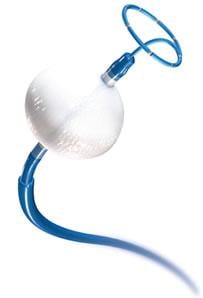
May 5, 2015 — Medtronic plc announced the start of a clinical study to determine whether paroxysmal and persistent atrial fibrillation (AF) can be treated with a combination of two ablation procedures targeting different anatomical locations – specifically, the pulmonary veins and the renal arteries. Study patients will also receive an implantable cardiac monitor to track their heart rhythm on an automatic and continuous basis. AF is a cardiac rhythm disorder affecting an estimated 2.7 million people in the U.S.
SYMPLICITY AF is a prospective, randomized, multi-center, feasibility clinical study investigating pulmonary vein isolation (PVI) and renal denervation compared to PVI alone, for the treatment of paroxysmal or persistent AF in patients with both AF and hypertension. PVI will be performed with the Arctic Front Advance cardiac cryoablation system, and renal denervation will be performed with the Symplicity Spyral catheter and Symplicity G3 radiofrequency (RF) generator. The Symplicity Spyral catheter and G3 generator are investigational in the United States.
Patients in both arms of the trial also will receive a Reveal LINQ insertable cardiac monitor (ICM) to automatically and continuously detect and record the net recurrence of abnormal heart rhythms after therapy randomization. This more comprehensive method of cardiac monitoring will provide greater detail and accuracy about the treatment effect of combination therapy with PVI and renal denervation versus PVI alone. Emile G. Daoud, M.D., at The Ohio State University Wexner Medical Center enrolled the first patient in the trial.
“Hypertension is one of the most prevalent risk factors for developing AF, but we’ve seen that it is also potentially the most modifiable risk factor for halting the progression of the disease,” said principal investigator Larry Chinitz, M.D., director, Heart Rhythm Center, NYU Langone Medical Center in New York. “As we continue to look for ways to prevent AF recurrence and improve outcomes for patients with AF, this trial may reveal a potential new treatment path for patients.”
Studies have shown that an overactive sympathetic nervous system (SNS) contributes to the development of both hypertension and AF. Current AF therapies do not specifically address SNS over-activity, and historically have focused on maintenance and regulation of rate and rhythm as well as anti-coagulation to prevent stroke. Renal denervation has been shown to effectively reduce elevated SNS activity, and previous research has signaled that renal denervation combined with PVI may improve patient response to PVI in AF patients.
SYMPLICITY AF will enroll up to 245 patients in up to 12 centers throughout the United States. Seventy of these patients will then be randomized to either PVI and RDN or PVI alone; all randomized subjects will receive a Reveal LINQ ICM. The primary safety endpoint is comprised of events related to both the PVI and RDN procedures. The primary efficacy endpoint will measure freedom of chronic treatment failure, defined as AF lasting 30 seconds or longer or the requirement for an intervention for atrial fibrillation through a minimum of six months. Heart rhythm data from the Reveal LINQ ICM will be reviewed monthly.
Enrollees in the trial include patients with either paroxysmal or persistent AF, and hypertension defined as office-based systolic blood pressure of ?150 mm Hg, despite treatment with two or more antihypertensive medications at the highest appropriate dose. AF is considered paroxysmal, or occasional, when the upper chambers of the heart beat erratically during self-terminating episodes lasting from a few minutes to a few days. AF is considered persistent when symptoms persist for more than seven days and medical intervention is needed to terminate the episode.
The study will also gather feasibility outcomes data on the use of the Arctic Front Advance cardiac cryoablation catheter for PVI in the persistent AF population. The Arctic Front Advance cardiac cryoablation system is not approved in the United States for the treatment of persistent AF; therefore, it is considered investigational in this patient population.
For more information: www.medtronic.com


 January 05, 2026
January 05, 2026 









